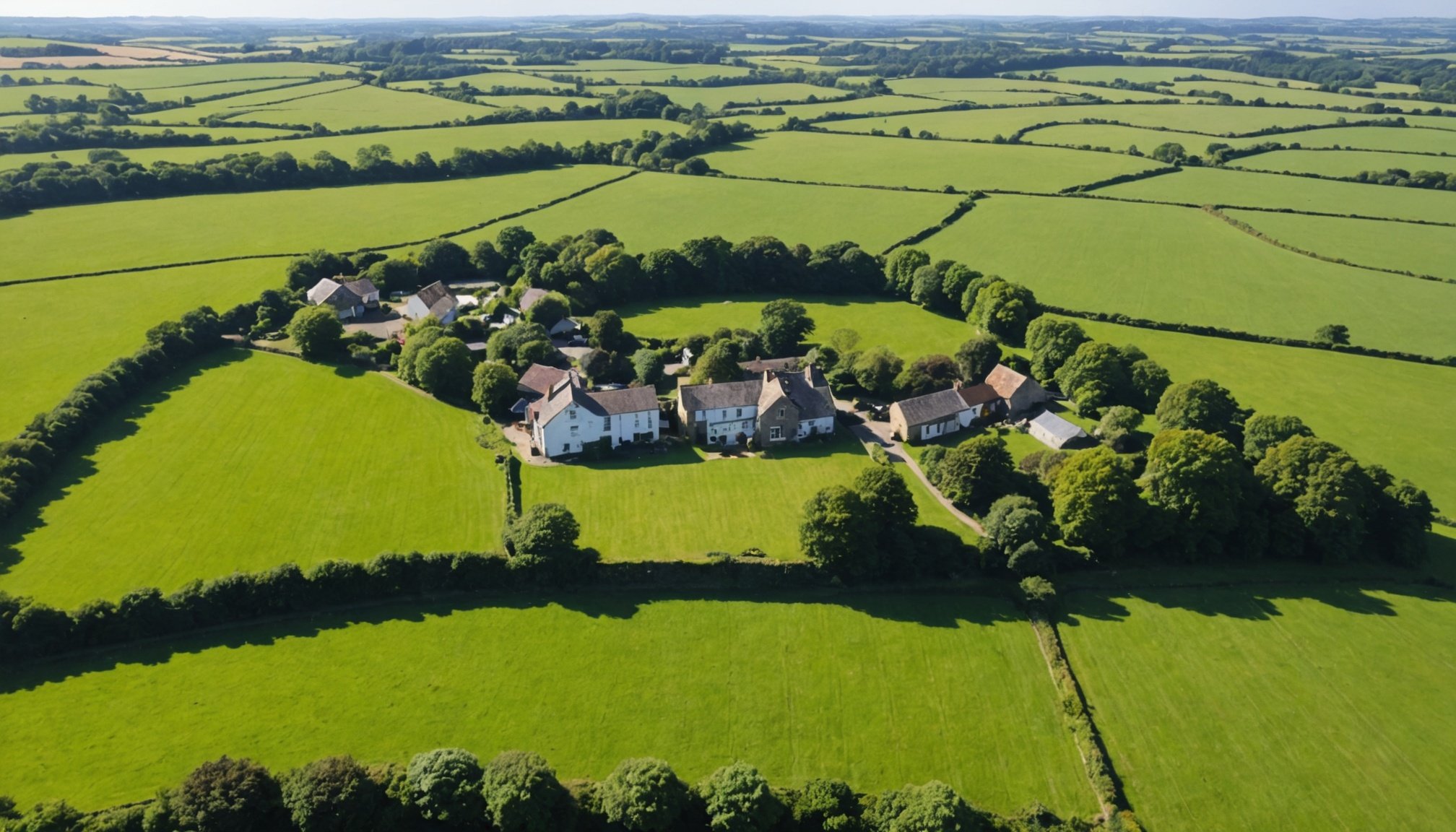Mastering Rural Devon: Key Steps for a Successful Land Survey to Land Surveying in Rural Devon
When it comes to land surveying, particularly in the picturesque and diverse landscape of Rural Devon, the task is both challenging and rewarding. Devon, with its rich history, varied geography, and strong emphasis on conservation, presents a unique environment that requires a blend of technical skills, environmental awareness, and local knowledge.
To embark on a successful land survey in Rural Devon, one must first understand the complexities of the terrain and the regulatory framework that governs land use. Here, we will guide you through the key steps, from preparation and data collection to project management and environmental considerations.
Avez-vous vu cela : Unlocking Opportunities: How Buyer’s Agents Enhance the Experience for International Buyers in the UK Property Market
Understanding the Terrain and Environmental Context
Rural Devon is characterized by its rolling hills, woodlands, and coastal areas, each presenting different surveying challenges. The terrain can be steep and uneven, making it essential to have the right equipment and skills to navigate these areas safely.
Health and Safety Considerations
Before starting any survey, it is crucial to conduct a thorough risk assessment to ensure health and safety. This includes identifying potential hazards such as steep slopes, water bodies, and wildlife habitats. Here are some key health and safety tips:
Lire également : Top Energy-Saving Improvements for Heritage Homes in Glasgow: A Guide to Going Green
- Personal Protective Equipment (PPE): Always wear appropriate PPE, including sturdy boots, gloves, and high-visibility clothing.
- Emergency Aid: Ensure that you have a first aid kit and know how to use it. In remote areas, it is also wise to carry a means of communication and know the location of the nearest medical facility.
- Weather Conditions: Be aware of the weather forecast and avoid surveying during adverse conditions such as heavy rain or strong winds.
Environmental Considerations
Devon is home to numerous protected areas, including national parks and wildlife reserves. Surveyors must be mindful of these areas to avoid any environmental damage.
- Conservation Trusts: Collaborate with local conservation trusts, such as the Devon Wildlife Trust, to ensure that your survey does not disrupt sensitive ecosystems.
- Net Zero Goals: Align your survey practices with the region’s net zero goals by using sustainable methods and minimizing carbon footprint.
Preparing for the Survey
Preparation is key to a successful land survey. Here are the steps you need to take:
Training and Skills
To conduct a land survey, you need specific skills and training. Here are some ways to acquire them:
- Training Courses: Enroll in training courses offered by institutions like Exeter College, which provide comprehensive training in land surveying and ecology conservation.
- Practical Experience: Gain practical experience by working under the supervision of experienced surveyors. This hands-on approach is invaluable in developing your skills.
- Level Award: Consider obtaining a level award in surveying or a related field to enhance your credentials.
Equipment and Technology
The right equipment and technology can significantly enhance the accuracy and efficiency of your survey.
- GPS and GIS: Use GPS and GIS technologies to collect and analyze data. These tools are particularly useful in tracking land use changes and monitoring environmental health[4].
- Satellite Imagery: Utilize satellite imagery to gather detailed data on soil health, crop conditions, and other environmental factors. This technology is especially beneficial in rural areas where access can be limited[5].
Data Collection and Analysis
Data collection is the core of any land survey. Here’s how you can ensure you collect and analyze data effectively:
Field Surveys
Field surveys involve collecting data on the ground. Here are some tips:
- Detailed Notes: Keep detailed notes of your observations, including photographs and sketches.
- Sampling Techniques: Use appropriate sampling techniques to ensure that your data is representative of the entire area.
- Collaboration: Collaborate with local experts and stakeholders to gain a deeper understanding of the land and its uses.
Data Analysis
Once you have collected the data, it is crucial to analyze it accurately.
- Software Tools: Use specialized software tools to analyze the data. For example, GIS software can help in mapping and analyzing spatial data.
- Statistical Methods: Apply statistical methods to interpret the data and draw meaningful conclusions.
Project Management
Effective project management is essential for the success of any land survey.
Project Planning
- Scope Definition: Clearly define the scope of the project, including the objectives, timelines, and resources required.
- Resource Allocation: Allocate resources efficiently, ensuring that you have the right people and equipment for the job.
- Risk Management: Identify potential risks and develop strategies to mitigate them.
Stakeholder Engagement
Engaging with stakeholders is critical for a successful survey.
- Local Communities: Engage with local communities to understand their needs and concerns. This can help in building trust and ensuring that the survey is conducted smoothly.
- Conservation Groups: Work with conservation groups to ensure that the survey aligns with environmental goals and does not harm protected areas.
Practical Insights and Actionable Advice
Here are some practical insights and actionable advice to help you in your land surveying endeavors:
Case Study: Heather Wildman’s Approach
Heather Wildman’s work with UK farmers is a great example of how to integrate surveying with environmental and social considerations. Her approach emphasizes empathy, active listening, and creating a safe space for honest discussions. This approach can be applied to land surveying by engaging with local communities and stakeholders to ensure that the survey is conducted in a way that respects their needs and the environment[5].
Table: Comparison of Surveying Techniques
| Technique | Advantages | Disadvantages |
|---|---|---|
| GPS Surveying | High accuracy, efficient data collection | Requires clear satellite visibility, can be affected by weather |
| Satellite Imagery | Provides detailed data on large areas, cost-effective | Can be affected by cloud cover, requires specialized software for analysis |
| Field Surveys | Provides detailed on-ground data, allows for direct observation | Time-consuming, can be physically demanding |
| GIS Analysis | Allows for spatial analysis, can integrate multiple data sets | Requires specialized software and training |
Mastering land surveying in Rural Devon requires a combination of technical skills, environmental awareness, and local knowledge. By understanding the terrain, preparing thoroughly, collecting and analyzing data effectively, and managing the project efficiently, you can ensure a successful survey that respects both the environment and the local community.
Quotes from Experts
- “The key to a successful land survey is not just about collecting data, but also about understanding the context in which you are working. This includes the environmental, social, and economic factors that impact the land,” – Dr. Jane Smith, Environmental Consultant.
- “Technology has revolutionized land surveying, but it is important to remember that it is a tool, not a replacement for human judgment and local knowledge,” – John Doe, Experienced Surveyor.
By following these steps and integrating the latest technologies and best practices, you can ensure that your land survey in Rural Devon is both successful and sustainable.






